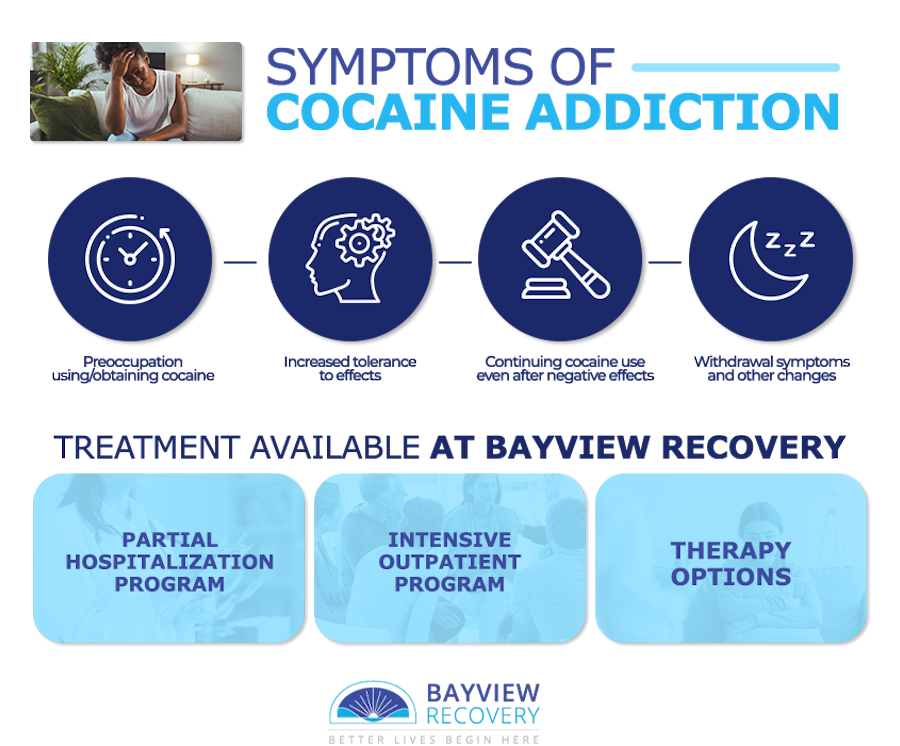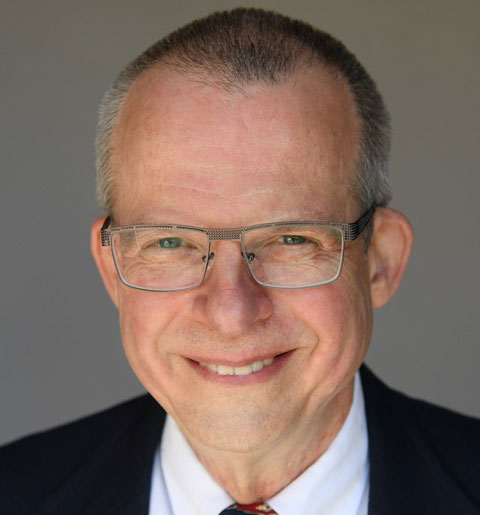Cocaine Addiction Treatment in Washington State
According to the National Institute on Drug Addiction (NIDA), in 2021, an estimated 4.8 million people aged 12 and older misused cocaine in the past year. In the same year, about 24,486 people died due to overdoses that involved cocaine. The need for professional and compassionate treatment for cocaine abuse is evident. That’s why Bayview Recovery Center offers cocaine addiction treatment here in Tacoma, Washington.

Bayview Recovery’s Cocaine Addiction Treatment Center in Tacoma, WA
If you are currently suffering from a cocaine use problem and want to end this struggle, then you will need a medically-supervised detox followed immediately by a comprehensive rehab program. Bayview Recovery’s cocaine addiction rehab center can help with both of these needs. We can work closely with your detox provider and provide a full suite of treatments and therapies designed to supplant your need for cocaine and crack.
A partial hospitalization program (PHP) is an intensive form of substance abuse treatment similar to residential (inpatient) treatment. It’s focused on treating severe cocaine addiction. This type of program typically includes group and individual counseling sessions, medication-assisted treatment for mental health concerns, 12-step meetings, and social support activities. The duration of the PHP will depend on the patient’s individual needs and can range from several weeks to several months.
The goal of a PHP for substance abuse is to provide comprehensive medical and psychological treatment while allowing patients to live at home during the recovery process. Individuals can remain in their own homes and still be part of a supportive Tacoma, Washington community
An intensive outpatient program (IOP) is a type of drug abuse treatment program that provides comprehensive medical and psychological care for individuals struggling with cocaine addiction. IOPs typically include group and individual counseling sessions, 12-step meetings, and various holistic activities. The length of the IOP will depend on the person’s needs and can last from several weeks to several months.
While enrolled in a substance abuse IOP, you can expect to receive thorough medical and psychological care. This is beneficial for those suffering from cocaine use problems as they’ll encounter a supportive community setting that allows them to remain in their own homes during the recovery process.
Our standard outpatient program is a less intensive drug abuse program than an IOP or PHP. In fact, a standard outpatient program is typically used as a step-down form of care for both forms of cocaine addiction rehab. A standard outpatient program allows individuals a more flexible form of treatment where they can attend therapy and other drug abuse education programs around their work and family responsibilities. Like all other forms of addiction treatment the length of the program will depend on the individual’s unique needs. Like other forms of care, you will continue individual, group, and family therapy.
We offer a variety of behavioral therapies in outpatient programs in Tacoma, Washington. Individuals who wish to seek treatment for cocaine addiction in Washington State can receive therapeutic support here at Bayview Recovery Center.
Our therapy options include:
- Cognitive behavioral therapy
- Dialectical behavior therapy
- Yoga therapy
- Meditation therapy
- Group therapy
- Family Therapy
Therapy is an important part of our cocaine addiction treatment in Tacoma, WA. Therapists help individuals struggling with cocaine use learn how to cope with the physical and emotional effects of addiction, develop healthy ways to deal with stress and triggers that lead to drug use, and gain insight into their behavior and motivations.
Cognitive behavioral therapy (CBT) is the most common type of psychotherapy used in recovery from cocaine addiction, helping individuals recognize unhealthy thinking patterns that contribute to their drug use, develop positive coping skills for feelings of depression or anxiety, and explore underlying causes of their substance use. Combined with drug abuse education, group counseling, and 12-step meetings, therapy can be a powerful tool for those seeking recovery from drug addiction.
What is Cocaine?
Cocaine and crack are highly addictive drugs, even for first-time users. These powerful stimulants are derived from the coca plant native to South America. Unfortunately, their abuse can require a cocaine addiction rehab center.
However the pleasurable effects of the drug — euphoria, happiness, and energetics — can be difficult to resist, and many users will find they have developed a dependency.
Cocaine is one of the oldest and most potent stimulants. History tells us that, over 5,000 years ago, the ancient Incans chewed the coca plant leaves to counter thin mountain air’s impacts on their health. However, by 1659, Albert Niemann, a German scientist, extracted cocaine from the coca leaves, and by the 1880s, the medical community prescribed it to their patients. However, in 1922, the United States made its use illegal, and it is now one of many illicit drugs in the United States because it can quickly become addictive.

What is Crack Cocaine?
Crack can be even more addictive than cocaine because of the way users take the drug. Crack is an illicit drug made from cocaine. It can be smoked, injected, or inhaled and results in a quick, intense high that dissipates quickly. Crack’s effects are highly addictive and can cause serious health problems including paranoia, hallucinations, heart palpitations, stroke, respiratory failure, and even death.
Cocaine and crack prevent your body from reabsorbing dopamine, a naturally occurring substance responsible for feeling pleasure as well as excitement. As a result, dopamine will continue to flow freely through your body with cocaine use, and users can sustain these highs for longer and longer periods of time.
The drug’s induced effects on the central nervous can be difficult to resist, and sustained use can quickly bring on devastating medical consequences.

Symptoms of Cocaine Dependency
Cocaine dependency or addiction is a chronic disorder characterized by compulsive cocaine or crack use and an inability to control the amount used despite experiencing negative consequences. People with cocaine dependencies often have difficulty stopping their use even when they have tried, and they may experience withdrawal symptoms if they attempt to quit.
Symptoms of cocaine dependence include:
- Cravings for the cocaine
- Increased tolerance to the effects of cocaine
- Preoccupation with obtaining and using the drug
- Difficulties in stopping its use despite negative consequences
- Withdrawal symptoms such as dysphoria, fatigue, irritability, and depression
If you’re suffering from dependency, you’ll need to visit a cocaine addiction treatment center, starting with a medically-supervised detox. A substance abuse treatment program in Washington state will be necessary to sever your dependency. Bayview Recovery’s cocaine addiction rehab center can help supervise your detox and provide a full slate of therapeutic and behavioral treatments coupled with a personal commitment to getting you safely past your addiction.
Symptoms of Short-Term Abuse of Crack and Cocaine
Cocaine and crack affect all aspects of the body, and even short-term abuse can then lead to many serious health problems.
For example, symptoms of cocaine and crack abuse include:
- Tachycardia (racing heartbeat)
- Restlessness
- Cardiovascular problems
- High blood pressure
- Tremors
- Coordination issues
- Dilated pupils
- Nausea
- Elevated body temperature
Symptoms of Long-Term Abuse of Crack and Cocaine
Cocaine and crack abuse have many long-term symptoms, and therefore the symptoms you have may vary depending on the form in which you take the drug.

- A decreased appetite
- Malnourishment
- Irritability
- Restlessness
- Paranoia
- Hallucinations
- Coordination issues
- Higher risk of Parkinson’s
- Poor hygiene habits
- An impaired sense of smell
- Nosebleeds
- A constant runny nose
- Inflammation in the nasal septum
- Swallowing issues
- Decreased intestinal blood flow
- Bowel decay
- Increased blood pressure and heart rate
- Decreased breathing capacity
- Excessive changes in mood
- Excessive shifts in weight
- Risks of blood-borne diseases, such as Hepatitis C and HIV
- Lowered immunity
- Heart problems like arrhythmias, heart attacks, or stroke
- Mental health conditions to develop
- Kidney damage, liver failure, and other organ damage
- Skin infections
Cocaine and Crack Withdrawal Symptoms
Cocaine and crack stimulate the parts of the central nervous system responsible for pleasure and also give users a sense of high energy. Without the drug, users will experience severe, negative as well as opposite physical and emotional responses.
Cocaine withdrawal symptoms include:
- Depression
- Fatigue
- Difficulty sleeping
- Insomnia
- Increased appetite
- Concentration problems
- Irritability
- Inability to feel pleasure
- Nausea and vomiting
- Seizures (in more serious cases)

Learn More About Our Cocaine Addiction Treatment in Tacoma, Washington
There is no magic or mystery to our approach to treatment for cocaine addiction. We simply place more emphasis than any other treatment facility on understanding not only the problem but also you. We have the resources to do this and the experience. And our results — many healthier, happier guests — tell us this is the right approach for quality recovery and long-term well-being.
When it comes to treatment for cocaine abuse or any other type of drug use disorder, we offer a comprehensive and compassionate approach. We understand that cocaine and other substances are addictive, and overcoming substance use disorders can be incredibly challenging. But, we are here to give our clients a chance at a successful recovery. So, if you’re ready to stop cocaine addiction from continuing to affect your life, let us help.
Call Bayview Recovery today to learn more about our effective treatments and how they can help you end your addiction to cocaine and crack. Your story doesn’t have to end with addiction. With professional help from our Washington addiction treatment center, you can turn to a new chapter in your life, one that’s authentic and deeply deserved.

“The staff at the center has been remarkable in their care for our loved one. Tuni was with us the whole way as we tried to get this person into treatment. They continue to assist us as the process continues. Great work!”
Ray O
“I have been trying to get sober the past 3 years and I have been to treatment 5 times. Bayview Recovery was my 6th time. They helped me get to 142 days sober! I was a handful hot mess when I got there but the team never gave up on me. They work with families and they truly care about them too. Bayview house’s are clean and comfortable and the staff is amazing. They plan for fun events weekly and they want you to have fun. If your looking for something different call them it will save your LIFE!”
Cindy J
“Bayview is dedicated to providing clients the healthiest environment to develop a solid foundation in their recovery. The therapists and medical team are devoted to ensure clients have the best individualized care. I highly recommend Bayview for anyone seeking a highly professional treatment program. The care and compassion given to clients is remarkable.”
Robin M
“This is a fantastic facility with outstanding staff. If you or a loved one is struggling this is a great program to start the journey of recovery and get life long skills and relationships to begin a new life!”
Garrett T
“Just picked up our daughter after 90 days at Bayview Recovery. Loved the staff and facility, do not know what the future holds ???????? but while at Bayview , always felt informed. Highly recommend, incredibly helpful especially at the very beginning when we were so helpless and needed help the most – God Bless.”
Rosie S
Dave Cundiff, MD, MPH is an experienced leader in the field of Substance Use Disorder treatment. He works with patients suffering from Substance Use Disorder to evaluate their medication needs and prescribe treatments accordingly. In addition, he regularly participates in all-staff debriefing sessions involving peers, nurses, and other prescribers. He also reviews and advises on policies, procedures, and techniques for treating substance use disorder.




